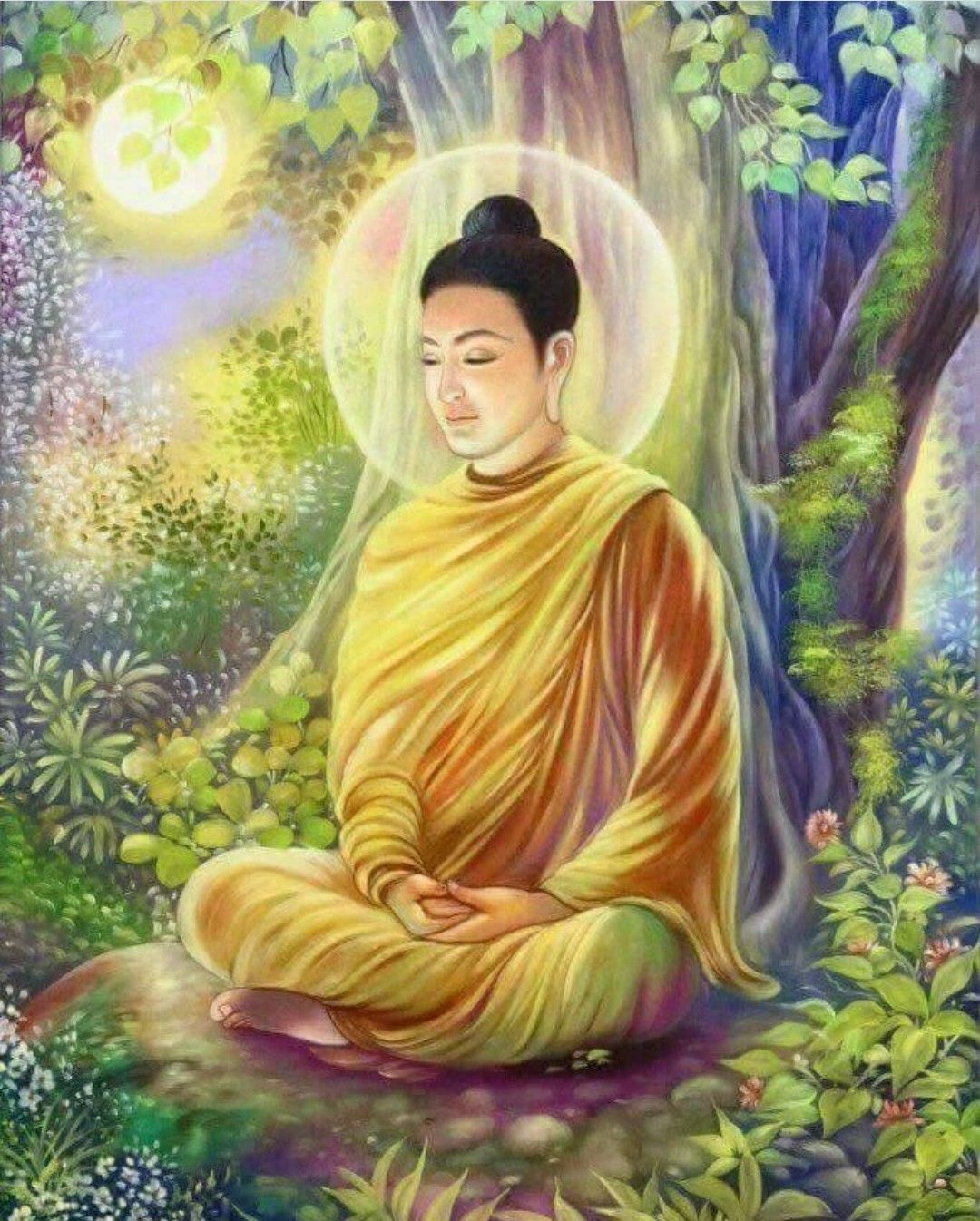The Story of Theri Kundalakesi
Verse 102: Better than the recitation of a hundred verses that are senseless and unconnected with the realization of Nibbana, is the recitation of a single verse of the Teaching (Dhamma), if on hearing it one is calmed.
Verse 103: A man may conquer a million men in battle, but one who conquers himself is, indeed, the greatest of conquerors.
The Story of Theri Kundalakesi
While residing at the Jetavana monastery, the Buddha uttered Verses (102) and (103) of this book, with reference to Theri Kundalakesi.
Kundalakesi was the daughter of a rich man from Rajagaha. She had led a very secluded life; but one day, she happened to see a thief being led out to be killed and she immediately fell in love with him. Her parents had to pay for the freedom of the thief, and they married her off to him. Although she loved her husband very dearly, her husband being a thief, was only attracted to her property and her jewels. One day, he coaxed her to put on all her jewellery and led her to a mountain saying that he wanted to make some offerings to the guardian spirit of the mountain because that guardian spirit had saved his life when he was about to be killed. Kundalakesi went along with her husband, but when they reached their destination, the thief revealed that he intended to kill her and take her jewels. She pleaded with him to take her jewels, but to spare her life, but it was of no avail. She then realized that if she did not get rid of her husband, there would be no way of escape for her. She felt she must be cautious and crafty. So she said to her husband that as they would be together only for a few moments more, she wanted to pay respect to him for the last time. So saying, and going round the man respectfully, she pushed him off the crag, taking him unaware.
After this, she had no desire to return home. She left all her jewellery hanging on a tree, and went on her way, without any idea where she was going. She happened to come to a place of some Paribbajikas (female wandering ascetics) and she herself became a Paribbajikas. The Paribbajikas taught her all their one thousand problems in sophistry; being intelligent she mastered all of them within a short time. Then her teachers told her to go out into the world and if she should find somebody who could answer all her questions, to become a pupil to him. Kundalakesi went throughout the length and breadth of Jambudipa, openly challenging everyone else to compete with her. Accordingly, she came to be known as “Jambukaparibbajika.”
On one occasion, she came to Savatthi. Before entering the city for alms-food she made a mound of sand and stuck a branch of eugenia on it, her usual sign of invitation to all others to take up her challenge. Thera Sariputta took up her challenge. Kundalakesi asked him a thousand questions and Thera Sariputta answered them all. When his turn came, he asked her just this, “What is the one? (ekam nama kim).” Kundalakesi could not answer, so she asked Thera Sariputta to teach her the answer to the question. Thera Sariputta replied that she should first become abhikkhuni; so she became a bhikkhuni, by the name of Theri Kundalakesi. Within a few days, she became an arahat.
Soon after this, the bhikkhus asked the Buddha, “Could it be possible for Bhikkhuni Kundalakesi to become an arahat after listening to the Dhamma only a little?” They also added that this lady had fought and won a victory over her husband, who was a thief, before she became a paribbajika.
Then the Buddha spoke in verse as follows:
Verse 102: Better than the recitation of a hundred verses that are senseless and unconnected with the realization of Nibbana, is the recitation of a single verse of the Teaching (Dhamma), if on hearing it one is calmed.
Verse 103: A man may conquer a million men in battle, but one who conquers himself is, indeed, the greatest of conquerors.
Dhammapada Verses 102 and 103
Kundalakesitheri Vatthu
Yo ca gatha satam bhase
anatthapadasamhita
ekam dhammapadam seyyo
yam sutva upasammati.
Yo sahassam sahassena
sangame manuse jine
ekanca jeyyamattanam
sa ve sangamajuttamo.
Source: Tipitaka












